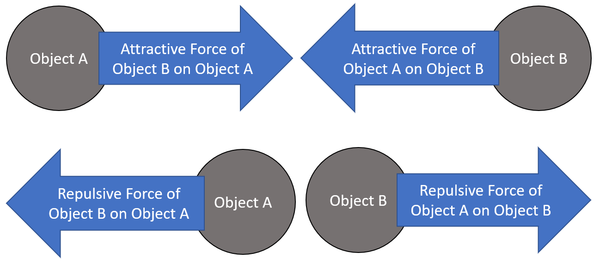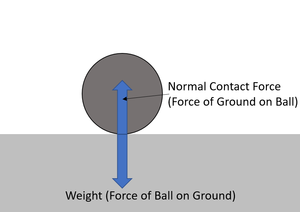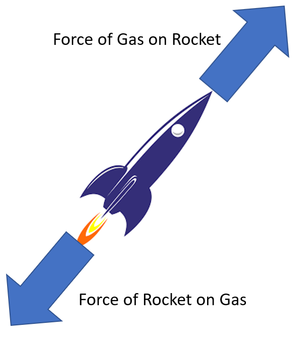Difference between revisions of "Force Pair"
(→Examples) |
(→About Force Pairs) |
||
| Line 5: | Line 5: | ||
===About Force Pairs=== | ===About Force Pairs=== | ||
: The two [[force]]s in a '''force pair''' may be referred to as an [[Action Force|action force]] and a [[Reaction Force|reaction force]]. | : The two [[force]]s in a '''force pair''' may be referred to as an [[Action Force|action force]] and a [[Reaction Force|reaction force]]. | ||
| − | : When an [[object]] "A" exerts a [[force]] | + | : When an [[object]] "A" exerts a [[force]] on [[object]] "B" then [[object]] "B" will exert a [[force]] on [[object]] "A". These are a '''force pair''' which will be equal in [[magnitude]] and opposite in direction to one another. |
===Examples=== | ===Examples=== | ||
Latest revision as of 12:06, 26 December 2020
Key Stage 4
Meaning
A force pair is the two forces that occur when two objects interact.
About Force Pairs
- The two forces in a force pair may be referred to as an action force and a reaction force.
- When an object "A" exerts a force on object "B" then object "B" will exert a force on object "A". These are a force pair which will be equal in magnitude and opposite in direction to one another.
Examples
| This diagram shows a force pair. It does not matter which is labelled "Action Force" and which is labelled "Reaction Force" |
| This diagram shows the weight as the "Action Force" and the normal contact force as the "Reaction Force". | This diagram shows a rocket with a force pair where each force is equal in magnitude but opposite in direction. |


